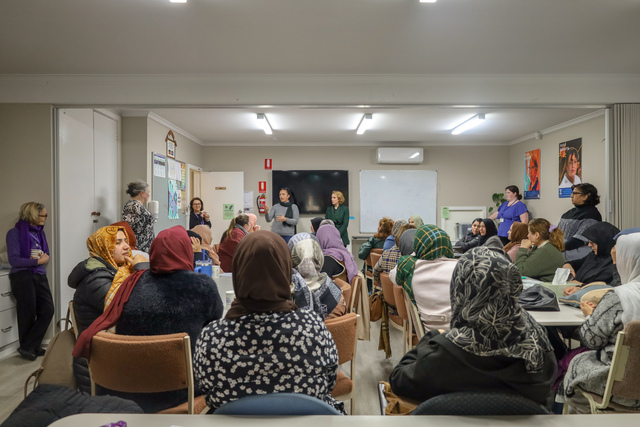A more inclusive health-care system is needed for the unique needs of migrant and refugee women, according to a joint report to the State inquiry into Women’s Pain.
Wellsprings for Women – with Women’s Health in the South East (WHISE) – based their submission on a forum with 38 migrant and refugee women.
“There is a strong link between physical pain and mental health issues, exacerbated by social isolation and cultural adaptation challenges,” the submission stated.
It reported significant healthcare barriers such as language difficulties, long wait times and their health concerns being dismissed by professionals.
A participant with extreme, chronic pain went regularly to the doctor for 10 years, but her condition remained untreated.
Another said: “Someone I know was very tired all the time and they went to the doctor and the doctor said it is all in their head.”
Others reported getting little help from doctors for issues such as painful menstruation or post-natal back pain.
Family violence was also a significant barrier to seeking healthcare.
Many women described physical “heart ache” and chest pain due to mental distress. But a lot reported keeping their pain private due to social pressures..
Poor mental health worsened with isolation from family and friends, cultural shock and language barriers.
One woman shared that “the first time I just went to the park and cried because I could not speak to anyone.”
“Acknowledging and addressing the unique and compounded needs of migrant and refugee women is essential for creating a more inclusive and effective healthcare system,” Wellsprings chief executive Dalal Smiley said.
“This submission highlights the importance of culturally appropriate and intersectional care.”
Among the recommendations were mandatory training for healthcare providers in culturally-appropriate care, as well as increasing availability of female practitioners.
The report called for access to professional interpreters and multilingual health resources, as well as better communication about health supports and services.
Wait times should be reduced, Medicare coverage increased and mental health should be integrated with physical health services.
WHISE chief executive Kit McMahon urged the Government to take its recommendations seriously.
“We call on (the Government) … to implement the necessary reforms to ensure that all women, regardless of their background, have access to quality healthcare.”
Safer Care Victoria, the Victorian Women’s Health Advisory Council, and the Pain Inquiry Subcommittee will lead the inquiry.
A final report to the Victorian Women’s Health Advisory Council is expected by December.







